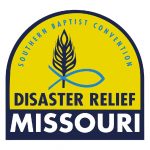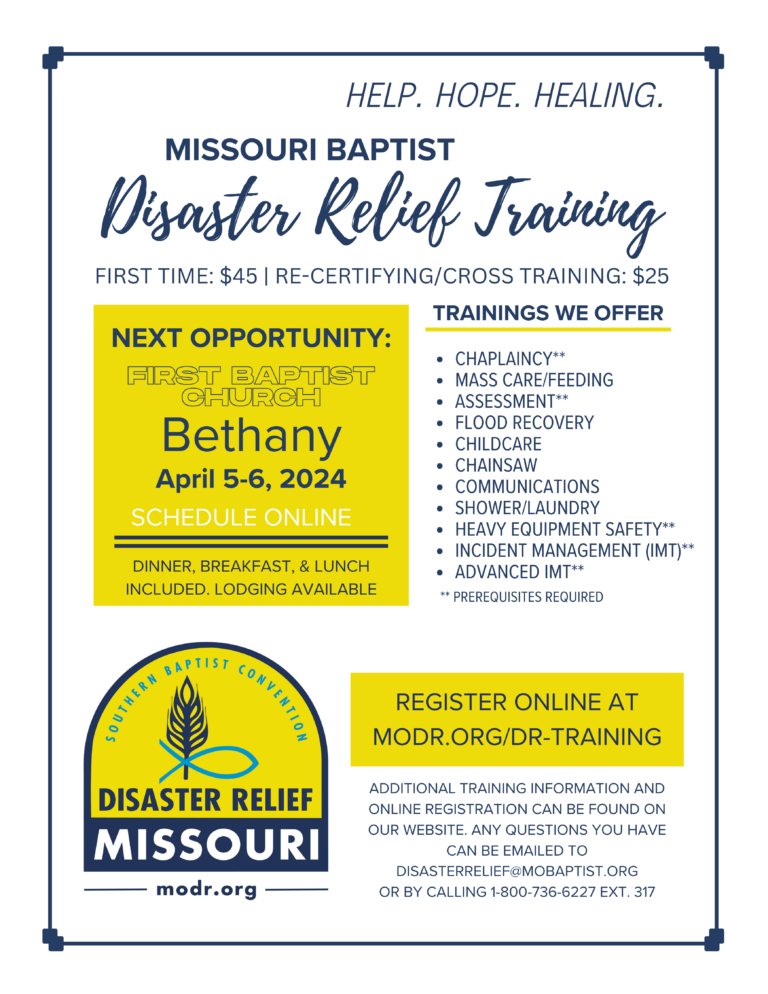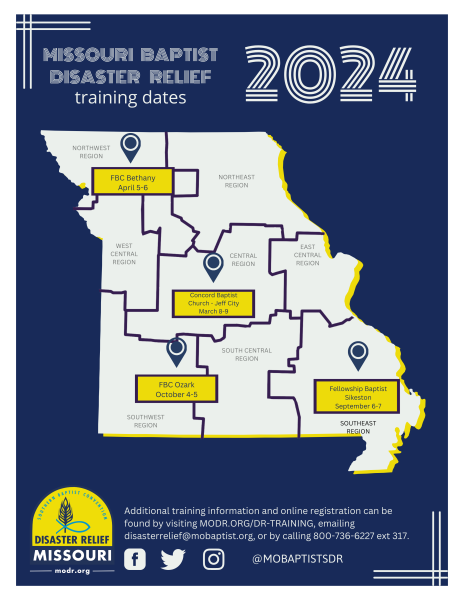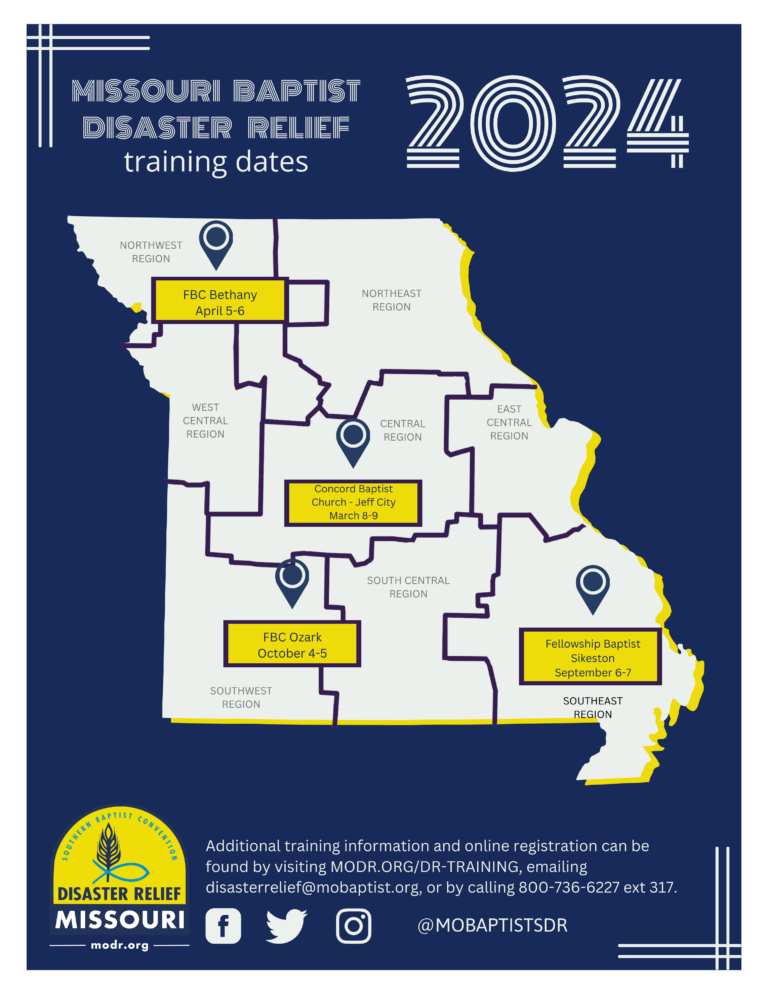Becoming a Disaster Relief Volunteer provides an excellent opportunity for hands on service to people in need. Training is open to any member of a Southern Baptist church who is at least 18 years of age. Attending training does not obligate you to serve but is necessary before serving.
Background Check Application
Background checks are required for first time volunteers and re-certifications (every five years). There are no exceptions.
Training Schedules & Forms
Training Manuals
Other Documents
Chainsaw Unit Tool List (.pdf)
What to Take Checklist (.pdf) Blue Hat Recommendation (.pdf)
General information for all training events:
Retraining is required every five (5) years!
Please note you must be 18 years of age and a member of a Missouri Baptist church to be certified as a Missouri Disaster Relief Volunteer. All trainees must submit a background check request, attend Introduction to Disaster Relief as well as retrain every five years in any class of your choice to remain a certified volunteer. Those training in Chaplaincy, refer to the Chaplaincy information below.
Registration fees and requirements:
- First time volunteers: $45
- Recertification (badge is expired or expiring this year): $25
- Cross Training (badge is not expired or expiring this year): $25
- First time Blue Hats and Chaplains: $30
Chaplaincy registration information:
Training begins at 1 pm on Friday and will continue on Saturday.
First time chaplaincy trainees: in addition to the registration fee, you have a cost for chaplain specific clothing items; currently $10.
You will need:
- previous training in other areas as well as on the job experience to attend this class.
- a letter of recommendation signed by your Pastor or Director of Missions.
- a signed statement concerning use of alcohol, tobacco and illegal drugs.
- must submit a background check request on-line.
Description of training offered:
- Introduction to Disaster Relief: Overall view of Disaster Relief (This class is required every five years.)
- Mass care (feeding): Mass food preparation and distribution in disaster areas.
- Chainsaw: Clearing trees, brush, and other major obstructions following a disaster.
- Child care: Temporary care unit working with children who are victims of a disaster.
- Shower unit: Provides shower and laundry support for workers and others in the disaster area.
- Mud out: Removing mud and other debris or filth, clean up and disinfecting following a flood.
- Communication: Hands on training teaches you how to provide effective communication equipment and processes for leaders, organizations and personnel in a disaster setting. If you are an amateur radio operator, IT Network guru, and/or proficient at anything related to telecom then this is the place for you.
- IMT Orientation: Coordinates all management aspects of a DR response. This training will introduce participants to the various components of the Incident Command System as it relates to Missouri Baptist Disaster Relief. Areas covered include but are not limite to Operations, Logistics, Administration, and Planning. Prerequisites include: minimum 2 deployments preferably in recovery but not required, computer skills, FEMA ICS 100 and 200, Blue training recommended.
- Advanced IMT: This training is designed to go into greater depth to responsibilities and duties of each of the 4 IMT General Staff positions. We will teach ONE of these areas at each of the 4 regional trainings for the year. In 2024 the schedule will be:
March – Operations Chief
April – Logistics Chief
September – Admin. Chief
October – Planning Chief - Assessment: By recommendation only – Learn to gather, evaluate and communicate information about the extent of damaged areas ahead of responding teams. Prerequisites include: trained in other areas of DR, have practical experience working a disaster as a yellow hat, recommendation from someone in DR leadership, and be pre-approved by the MBC DR State Specialist. You do not have to be a blue hat to take this training.
- Chaplain: Provides effective counseling sessions during a disaster; involves listening, caring, encouragement, and seeking evangelistic opportunities. Prerequisites include: trained in other areas of DR, and have practical experience working a disaster as a yellow hat.



